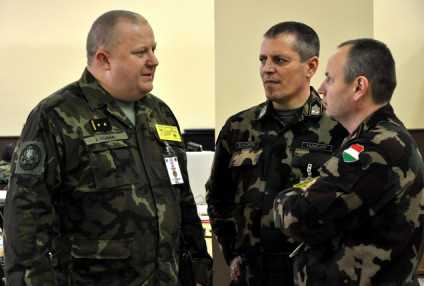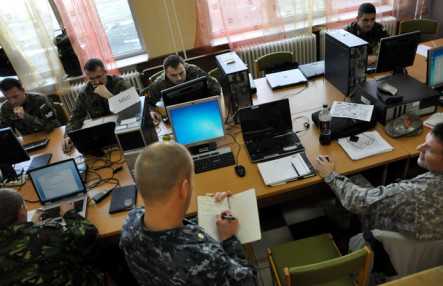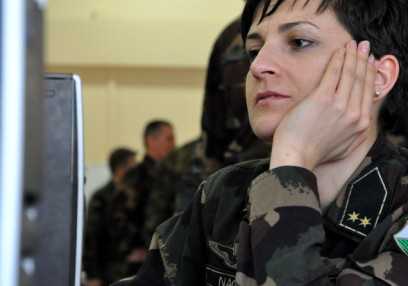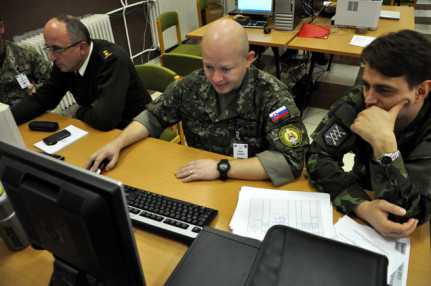Logistics in a Virtual Environment
Szöveg: Gábor Kálmánfi | 2015. január 30. 18:00As we have already reported, the tabletop exercise (TTEX) element of the “Capable Logistician 2015” (CL15) logistic exercise is currently going on with the participation of soldiers from 12 nations at the HDF Joint Force Command (HDF JFC). Exercise Director Lt.-Col. Jan Husák, Director of the Prague-based Multinational Logistic Coordination Centre (MLCC) and Exercise Co-Director Col. Zoltán Schmidt, Chief of Logistic Forces, HDF JFC told us that the TTEX provides the soldiers of participating nations with a good opportunity to standardize their procedures.

Lt.-Col. Jan Husák (leftmost in the photo) said that the objective of the logistic exercise is to raise the level of interoperability as high as possible. He added that the member states participating in the European Union Battle Group – which is to be set up in 2016 – are working in the special field of logistics to incorporate the NATO procedures for the Joint Logistic Support Group, in order to ensure the effective work of the logistic staff in the battle group.
The CL15 exercise – to be held in Hungary in early summer – is going to involve more than 1,500 troops and 500 pieces of military equipment. These figures, however, may change, even significantly, because the final planning conference of the exercise will be held in Budapest only in April, Lt.-Col. Jan Husák added. He underlined that the exercise will comprise a wide range of functional areas (FAs), among others the professional use of capabilities such as water purification, fuel and ammunition supply, maintenance and repair. (The Hungarian Defence Forces have these capabilities, and have committed part of them to NATO for use.)

In answer to a question, Col. Zoltán Schmidt told us that the effectiveness and level of organization of the logistic command and control (C2) fundamentally determines the effectiveness of real-world operations and the task execution of the deployed forces.
“This staff coordinates the work of the multinational logistic elements and organizes logistic support for the fighting units during operations. All incoming requests are processed here, and the subordinate sub-units provide adequate support under the direction of the staff", the colonel said.

Of course, the military logisticians have to cope with the widest possible array of virtual difficulties during the simulated exercise, which is going on in a fictitious country. For example, a fire may break out at a POL point, a supply transport convoy may be ambushed, or they may be tasked with producing potable water for the units from the water of a lake on a daily basis. (The latter two events may also occur in the “real-world" scenario of the summer exercise…)
“The members of the staff are currently building a cohesive team, as they will work together in the summer too. Obviously, all of them are professionals, but this is the first time that they have met each other. In June, following the re-deployment of the countries’ forces and starting from the arrival of the various elements, they will be tasked with coordinating the whole exercise »live«", the chief of the logistic forces told us while explaining the importance of the preliminary staff-level TTEX.

Photos by the author